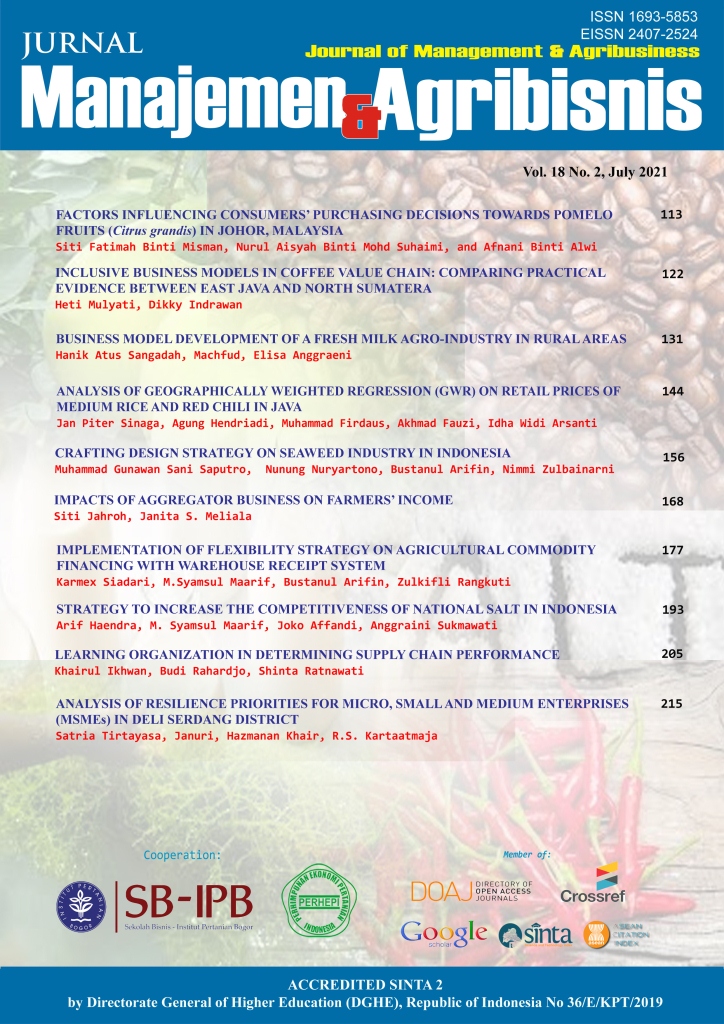Inclusive Business Models in Coffee Value Chain: Comparing Practical Evidence Between East Java and North Sumatera
Abstract
This paper explores inclusive business practices by focusing on the relationship between investments for-profit and social impact for small-scale farmers. Value chain mapping was used and combined with business model canvas to enable fact-finding and linkage between profit-taking action and social impact in the coffee value chain. The study was performed in two regions: East Java and North Sumatra. The study interviewed 72 farmers from Bondowoso District, East Java, and 30 farmers from Mandailing Natal District, North Sumatra. The qualitative analysis revealed the role of local organization networks in supporting the extension and improving performance in value chain governance. The organization networks supported social issues and provided access to diverse resources and environments for companies to build commitments. Furthermore, the business model canvas modeled value propositions that were practically tackling the dimensions of profit and social impact to the organization's context. The coffee value chains in both regions were differ based on key features and elements of small farmers' inclusion in the coffee value chain. The findings show that the coffee business model in Mandailing Natal encouraged smallholder farmer inclusion better than in Bondowoso. Therefore, the study implies that a shifting from profit into social initiatives in inclusive business is needed. This study provides practical evidence of business model canvas in the coffee value chain cases, showing how to develop a mission social innovation in a profit organization.
Keywords: inclusive business models, business model canvas, value chain, coffee
Authors
Authors who publish with this journal agree to the following terms:
- Authors retain copyright and grant the journal right of first publication with the work simultaneously licensed under a Creative Commons Attribution License that allows others to share the work with an acknowledgement of the work's authorship and initial publication in this journal.
- Authors are able to enter into separate, additional contractual arrangements for the non-exclusive distribution of the journal's published version of the work (e.g., post it to an institutional repository or publish it in a book), with an acknowledgement of its initial publication in this journal.
- Authors are permitted and encouraged to post their work online (e.g., in institutional repositories or on their website) prior to and during the submission process, as it can lead to productive exchanges, as well as earlier and greater citation of published work (See The Effect of Open Access).

